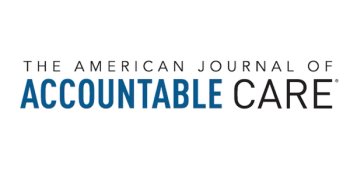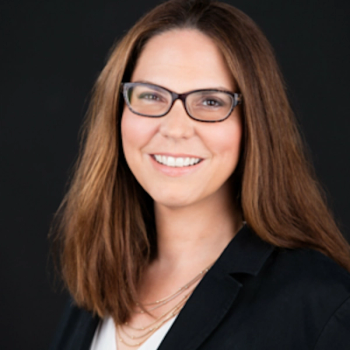
A new report from the Office of Inspector General (OIG) of HHS suggests the accuracy of Medicare’s race and ethnicity data will only diminish over time, unless changes are implemented.

Today, CMS unveiled its plan for a successor to the Oncology Care Model (OCM), its ambitious foray into value-based care delivery that has been credited with changing the landscape for patients with cancer, even if it received mixed reviews on achieving savings in its early years.

A new report from the Office of Inspector General (OIG) of HHS suggests the accuracy of Medicare’s race and ethnicity data will only diminish over time, unless changes are implemented.

The Supreme Court has ruled that HHS' decision to lower reimbursement rates to hospitals so that those in the 340B program received reduced rates because they received discounted drugs was unlawful.

Influenza vaccine uptake improved among Medicare Advantage enrollees when influenza vaccination was introduced as a performance metric in Medicare star ratings and accompanying bonus payments.

The analysis of adults with low income enrolled in Medicare Advantage (MA) or traditional Medicare (TM) indicates that increasing enrollment in MA may not advance health equity in the Medicare program.

The Accountable Care Organization Realizing Equity, Access, and Community Health (ACO REACH) Model provides the next great opportunity in moving a health care payment system toward paying for value and rewarding preventive care and keeping patients healthy.

Investigators in Spain tested whether the tool would work in elderly patients in the primary care setting.

It is still unknown whether the relationship between polypharmacy and malnutrition is bidirectional and authors could not determine causation.

The organizations that can take on 2-sided risk are usually bigger and that’s not always better for health care, said Jayson Slotnik, partner, Health Policy Strategies, Inc.

The tools we need to achieve long-term stability for community providers and ensure better outcomes for rural Americans are available, and CMS can help us utilize them.

Results of a secondary analysis of a randomized controlled trial emphasize the risks of polypharmacy with regard to prescription and nonprescription medications.

The report details totals paid to hospitals by private insurers and providers and compares the sums with a Medicare benchmark.

President Joe Biden announces plans to improve baby formula shortages; Massachusetts reaches settlement with veterans who contracted COVID-19 in long-term care facility; a quarter of Medicare beneficiaries were harmed from hospital stays in 2018.

While CMS has started making changes to address health equity through policy and payment models, commercial plans are waiting to see the outcomes before they follow suit, said Jayson Slotnik, partner, Health Policy Strategies, Inc.

UPMC Health Plan, RxAnte, and Mosaic Pharmacy Services outlined how they are operating a value-based pharmacy care management program within Community HealthChoices, Pennsylvania’s managed Medicaid long-term services and supports (LTSS) program, at a recent conference.

Coverage, equity, and value-based payments are critical areas of focus for the Biden administration’s health care agenda leading up to the midterm elections, according to 3 experts from Avalere.

Alexis Garcia, PharmD, senior director of business development at Tabula Rasa HealthCare, explains the importance of up-to-date data when implementing medication therapy management programs.

The opening plenary of the Spring 2022 National Association of Accountable Care Organizations conference focused on addressing health equity and improving synergy between CMS and ACOs.

Investigators have found that Medicare Advantage plans were denying care that should be covered for tens of thousands of people; Anthony Fauci, MD, claimed that the United States is in the transition phase of the pandemic; measles cases rose by 79% in 2022.

Alexis Garcia, PharmD, senior director of business development at Tabula Rasa HealthCare, outlines how cytochrome P450 enzymes can impact medication efficacy in patients taking multiple drugs.

Addressing the opioid crisis will require a strong, multifaceted approach that includes efforts to prevent addiction before it begins. By passing the NOPAIN Act, Congress can seize the win-win opportunity to reduce unnecessary exposure to opioids, while protecting—and expanding—a patient’s right to choose their own care.

Coverage from the Association of Community Cancer Centers 2022 Annual Meeting and Cancer Center Business Summit, held in Washington, DC, March 2-4.

In Medicaid, delivering care needs to address the lack of resources and other socioeconomic factors that impact patients, said Steve Evans, MD, chief medical officer of SilverSummit at Centene.

Researchers investigated polypharmacy incidence in one of the fastest-aging regions in Spain.

Stephen Schleicher, MD, MBA, chief medical officer of Tennessee Oncology, talks about lessons learned from the Oncology Care Model (OCM) and Medicare that are being used to innovate toward value-based care.

Panelists touted the ability to pay for items and repairs to keep Medicare beneficiaries healthier at home, avoiding potentially costly hospitalizations and complications.

259 Prospect Plains Rd, Bldg H
Cranbury, NJ 08512
© 2025 MJH Life Sciences®
All rights reserved.
